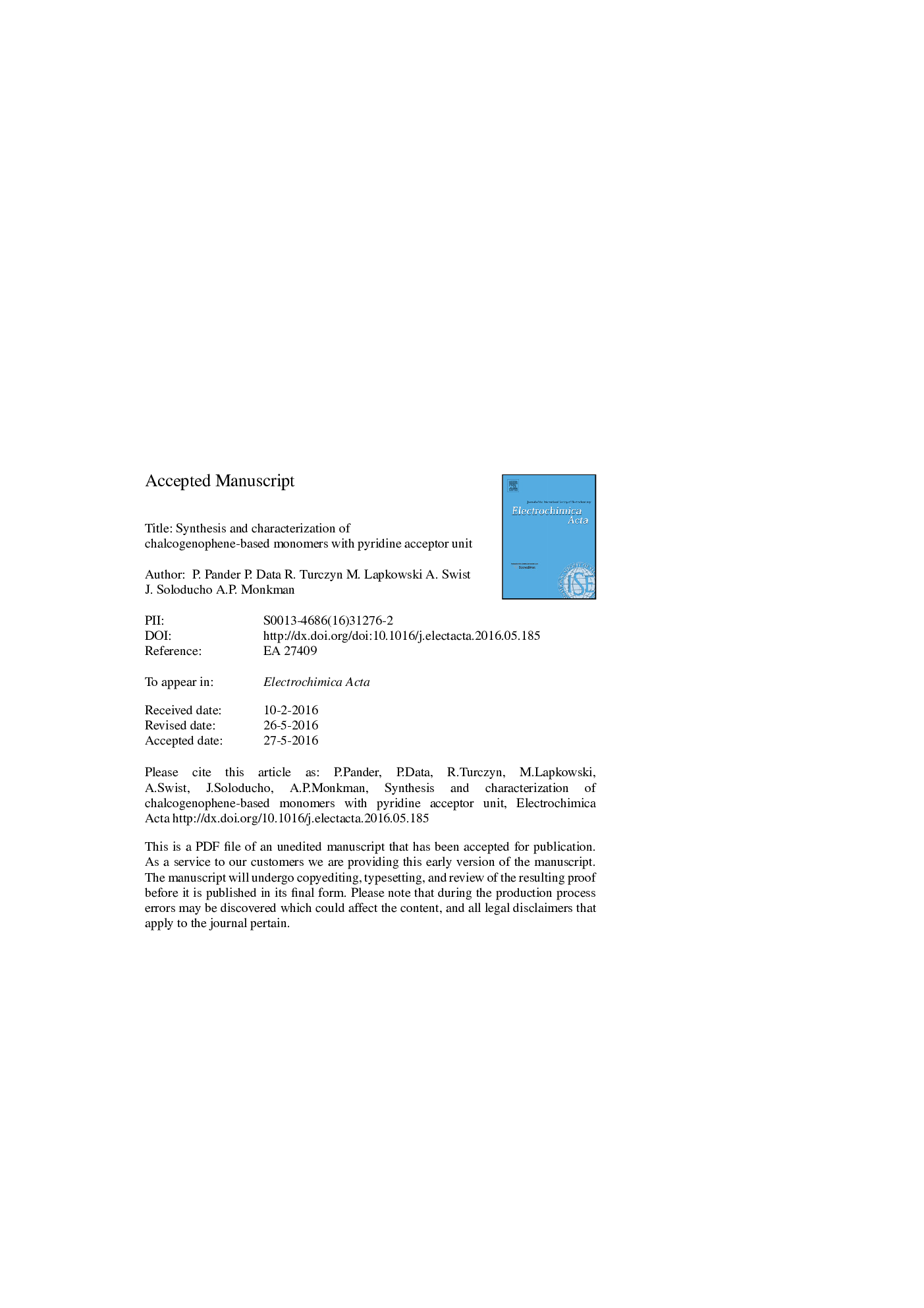| Article ID | Journal | Published Year | Pages | File Type |
|---|---|---|---|---|
| 6607098 | Electrochimica Acta | 2016 | 24 Pages |
Abstract
2,4,6-Trisubstituted pyridine derivatives with different electropolymerizable groups were investigated. It was shown that steric hindrance caused by bichalcogenophene substituents in the 2,6-positions of pyridine enables successful electropolymerization whereas previous studies on 3,5-substituted pyridines shown difficulties caused by the presence of the pyridine nitrogen lone electron pair. Cyclic voltammetry and differential pulse voltammetry techniques were used to determine the electronic properties of the studied compounds and obtained polymers. UV-Vis-NIR and EPR spectroelectrochemistry were used to determinate the behavior of the polymers in the doping-dedoping cycles. The polymers were found to have coloration efficiency up to 245Â cm2Â Câ1 and exhibit sufficient stability for application and highlighting their possible use as electroactive layers in electrochromic devices.
Keywords
Related Topics
Physical Sciences and Engineering
Chemical Engineering
Chemical Engineering (General)
Authors
P. Pander, P. Data, R. Turczyn, M. Lapkowski, A. Swist, J. Soloducho, A.P. Monkman,
